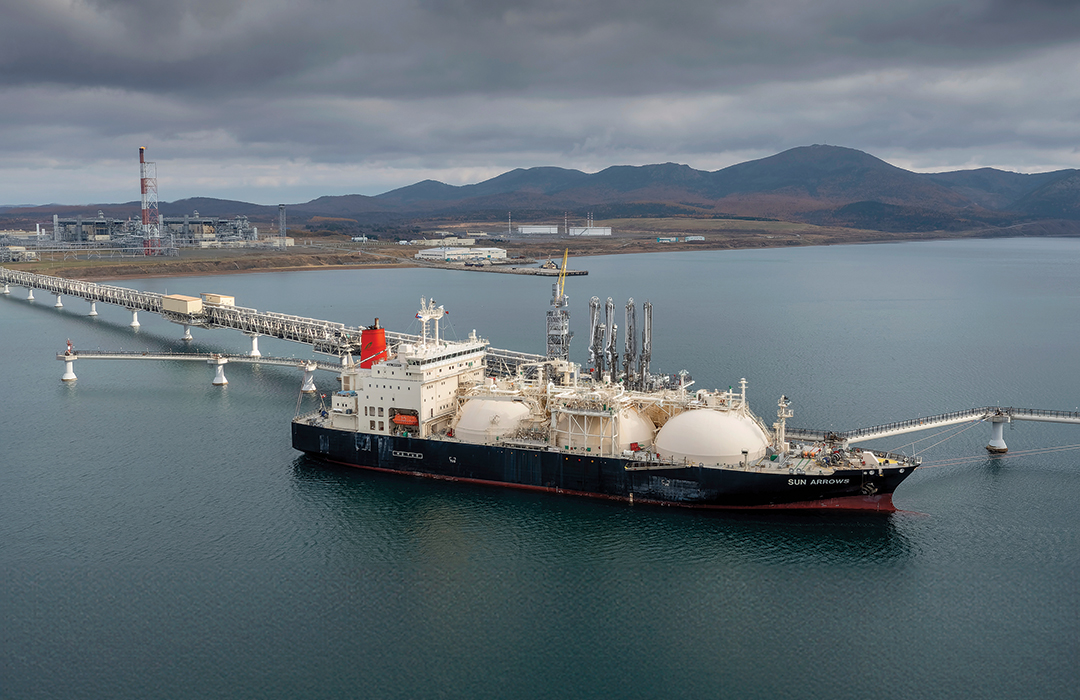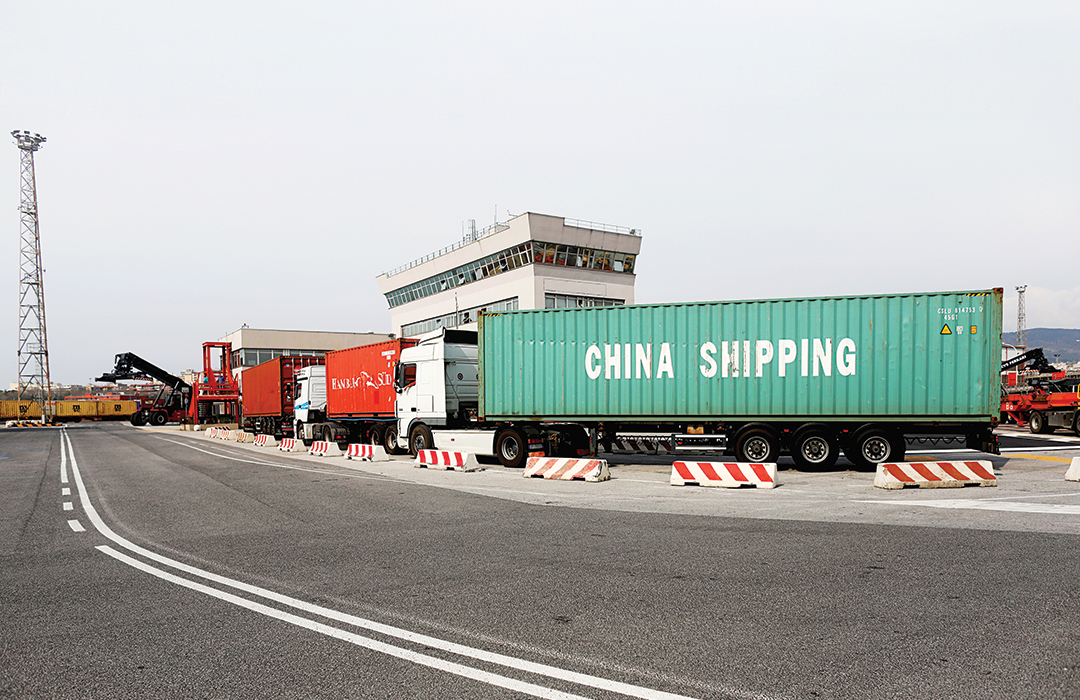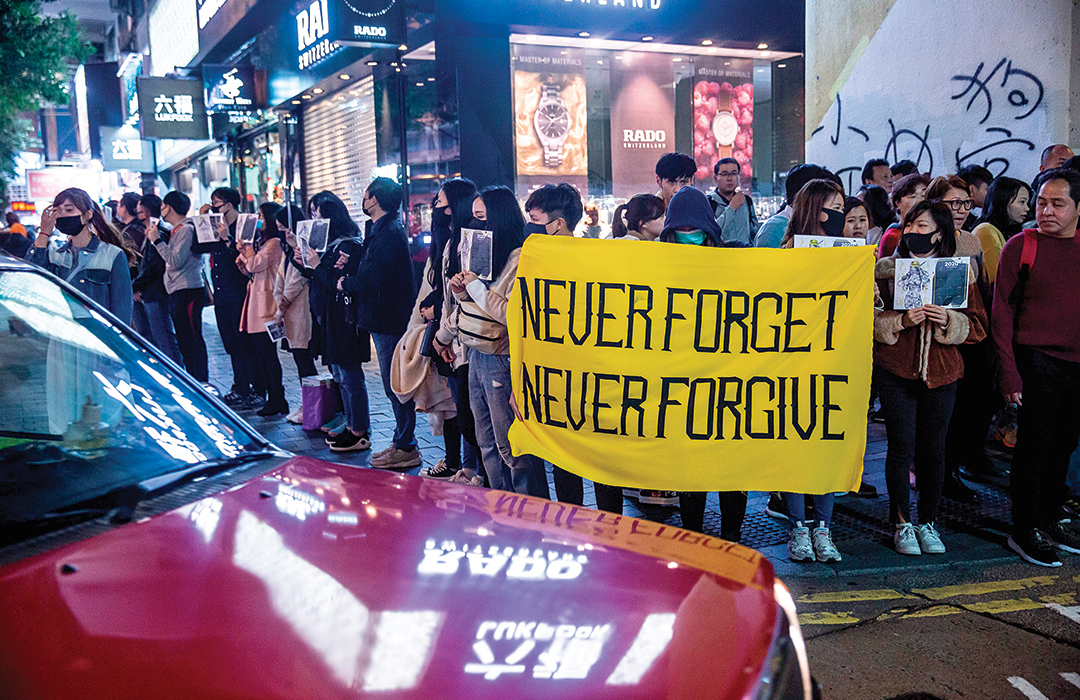Countering Beijing’s strategic efforts
By Brig. Gen. James D. Cleet, deputy director, U.S. European Command Plans and Operations Directorate
Former U.S. Secretary of State, Secretary of Defense and U.S. Army Chief of Staff Gen. George C. Marshall once said, “We have walked blindly, ignoring the lessons of the past, with … the tragic consequences of two world wars and the Korean struggle as a result.” Marshall was addressing the dangers of failing to recognize strategic imperatives in the mid-20th century, a lesson equally relevant today given the malign actions of China and Russia.
Russian President Vladimir Putin and Chinese Communist Party (CCP) General Secretary Xi Jinping announced a “no-limits friendship” between their countries in 2022 that Xi stated is driving changes not seen for 100 years. Beijing has partnered with Moscow, not only offering diplomatic and economic support for Putin’s unjust war against Ukraine, but also joining with Russia and other autocratic powers seeking to undermine the world’s rules-based order in favor of a system more amenable to their authoritarianism.
Russia’s repeated violations of national sovereignty and its unprovoked war in Ukraine pose the most significant threat to Europe and NATO since the Cold War. This should be a wake-up call. Moscow’s upending of the European security framework undermines European unity and international institutions, emboldens authoritarians, terrorists and their backers and apologists, and threatens global freedom and security.
However, Russia is not Europe’s only security concern. The People’s Republic of China (PRC) continues to increase its malign influence and expand its access in Europe, creating regional instability and exacerbating the Russian threat. Beijing’s diplomatic and materiel support of Russia’s war is detrimental to European peace and security. China has been critical to propping up Russia’s economy through aid and energy imports.
Beijing and Moscow have deepened defense cooperation and interoperability, including joint maritime and air patrols. Beijing is also supporting Moscow’s military buildup in Ukraine with technical assistance. At the same time, the PRC engages in actions to undermine trust in Europe’s democratic institutions and amplifies Russian disinformation, especially on Ukraine, often parroting Russian talking points.
Russia is deepening ties not only with the PRC, but also with Iran and North Korea. The increasing alignment of authoritarian powers, which persistently aim to undermine Allied cohesion and Western values, is a chronic and growing threat to European and global security. This threat underlines the importance of building a sustainable global partnership of free nations to include not just NATO and Asian allies, but also democracies in Africa and Latin America.

China and strategic competition
Over the past 30 years, China has steadily evolved into a top-tier strategic competitor both economically and militarily, and its integration into world markets has been truly remarkable. The CCP is committed to engaging in strategic competition in Europe, where it attempts to threaten enduring NATO and partner interests through foreign direct investment (FDI), government-backed business ventures and infrastructure deals, and tries to influence academic and cultural institutions. During what seemed in the West to be an interlude from strategic competition — while we were focused on fighting terrorism — the CCP was strategizing, and China became richer and stronger.
In recent years, once-optimistic outlooks on Europe’s business relations with China have become guarded, and for good reason. Russia’s invasion of Ukraine clearly demonstrates the danger of underestimating a strategic competitor with European ambitions. The CCP views strategic competition as a multipronged effort. China’s engagement in Europe is layered across the spectrum, from investments in university research to the wholesale purchase of small- and medium-sized enterprises. The CCP would as soon acquire technology — either by buying it or outright stealing it — than invest in its development. These acquisitions aim to secure the intellectual property the CCP needs to support its long-term strategic goals and advance the PRC’s defense industries and technology base.
The PRC is working to increase its economic, political and cultural influence in Europe. China implemented an aggressive diplomatic approach to intimidate rivals and undermine their institutions and credibility. Beijing has also invested heavily in efforts to influence academic, cultural and political elites, especially in countries with weaker institutions and more fragile civil societies.
Rather than deal with the European Union as a whole, Beijing prefers to pursue bilateral engagement through PRC-led forums, such as the Cooperation between China and Central and Eastern European Countries, or 14+1 Cooperation Framework, and the related, global One Belt, One Road program (now renamed the Belt and Road Initiative). These activities have created dependencies on Beijing, giving it leverage among U.S. Allies and partners.
Of particular concern are PRC investments in European ports, transportation hubs, communications networks and other critical infrastructure, which can provide dual-use functions. For example, Chinese state-owned companies have majority stakes in the Port of Piraeus in Greece and the Port of Zeebrugge in Belgium, and significant shares in at least a dozen other ports and container shipping terminals throughout Europe. Many of these ports are located close to NATO naval bases or are used by NATO’s logistics networks. Chinese companies are heavily invested in European grid infrastructure and energy development, and are partnered with European companies in mining, oil exploration and more. China is also building a new railroad from Budapest, Hungary, to Belgrade, Serbia. Chinese control of such critical European infrastructure could negatively affect NATO mobilization efforts, hinder communication and threaten energy supplies in a crisis.
China uses both legal and illegal means to gain advantage in emerging technologies such as artificial intelligence, advanced robotics, quantum research, directed energy and hypersonic systems. To increase wide adoption of Chinese-developed technology, Beijing is pushing for international acceptance of its national technology standards. Huawei’s 5G network, which China has pushed to be adopted throughout Europe, is an example of one such government-backed enterprise. It enables the PRC to exploit intellectual property, sensitive information, technology and private personal information, which poses significant security risks for NATO members and partners.

Rules-based world order
While China’s rapid economic advancement is notable, it was made possible by a supportive, rules-based international system. Western governments and institutions supported China’s inclusion into the World Trade Organization (WTO), hoping the rewards of free and open trade would inspire Beijing to adopt the principles of the system and become a contributing member. Unfortunately, the CCP was not convinced. WTO membership facilitated the PRC’s rise, boosting its greater-than-tenfold economic growth and lifting millions out of poverty. However, the CCP never adopted nor adhered to the rules of the system from which China so greatly benefited. Instead, it touted the economic gains and improved standard of living as proof of its own hybrid authoritarian/market system and used this success to further legitimize its grip on power.
China is not a democratic country, nor one that adheres to the rules of the liberal international order. The CCP controls the internet, businesses and the media; suppresses freedom of speech; rides roughshod over its own people; and threatens its neighbors. Having honed the suppression of dissent and freedom at home, the CCP does not hesitate to employ the same methods abroad, whenever and wherever it can. The PRC has a proven history of intellectual property theft using pressured economic leverage, and through cyberattacks and industrial espionage. Repression of dissent in China also creates an echo-chamber effect, limiting opposing viewpoints and hampering CCP Chairman Xi Jinping’s and other party leaders’ abilities to understand Western actions. This is what China expert Susan Shirk called the “dictator trap” in an October 2022 op-ed for The New York Times. Fealty becomes “more important than competence,” she wrote, “and subordinates compete to prove their loyalty by carrying out … policies to the extreme rather than raising harsh truths about negative consequences.”

The watchword is vigilance
China’s conduct — in Europe and toward its neighbors in Asia — deserves as much concern and attention as is currently being given to Russia’s. Through its tacit support for Russia, before and after the invasion of Ukraine, Beijing has made it clear it values its strategic relationship with Moscow more than its relationships within Europe. Europe must therefore reassess those relationships as well.
The EU and China remain important trade partners. China’s economy is export-driven, and the EU is an invaluable, mature market for Chinese goods. The EU is taking important measures to reduce risk and counter malign Chinese influence. In 2023, Internal Market Commissioner Thierry Breton called on EU member states and telecoms operators to exclude equipment from Huawei and fellow Chinese telecom company ZTE from their mobile networks, calling it “too critical a vulnerability and too serious a risk to our common security.”
More extensively, the European Commission disclosed its new Economic Security Package in January, giving it increased oversight of Chinese FDI in the EU and export controls over potential dual-use technologies, especially in highly sensitive technology sectors. The new measures also encourage enhanced research security. European Commission President Ursula von der Leyen refers to it as a much-needed “de-risking” of economic relations with the PRC. The measures aim to prevent Europe from becoming overly reliant on Chinese green-energy technology and critical raw materials in the same way it has been on Russian energy.
The democratic, rules-based international order is under threat from China, Russia and others. We must assess and address these threats pragmatically and with a long-term focus. Western democratic values have guided the global economy and the liberal market system, and have lifted more people out of poverty over the course of a few generations than any other system, and at any other time, in recorded history.
When it comes to China and its relationship with Europe, we must avoid the trap of projecting our cognitive biases onto an adversary. Russia’s invasion of Ukraine is a glaring recent example of how such bias can result in a failure to fully understand an adversary’s motivations. The lessons learned from Russia’s aggression and disregard for international norms are valuable only if they are truly learned and applied to other global challenges — especially in the context of understanding Beijing’s strategic interests.
When it comes to Europe’s relationship with China, we must be careful to not let optimism or pessimism warp our analyses. China remains an important economic partner and will continue to play a major role in the world. Strategic competition, by its nature, is complicated. Disruptive activities take time to manifest, and clarity is not easily achieved. Most importantly, we need to appreciate that military power is just one facet of strategic competition.
Beijing must understand it needs Europe and the West at least as much as Europe and the West need China. China cannot be allowed to support Russian aggression, violate international law in the South China Sea, infringe upon the human rights of its citizens and threaten the territorial sovereignty of its neighbors, and still expect to enjoy the full benefits of an international order that is based on rules by which Beijing refuses to be bound. It cannot have it both ways.
Russia surprised many in the West with its unprovoked invasions of Ukraine, first in 2014 and again in 2022, clearly demonstrating its blatant disregard for international norms, a disregard shared by China. It is a strategic imperative to view China through clear eyes.


Comments are closed.